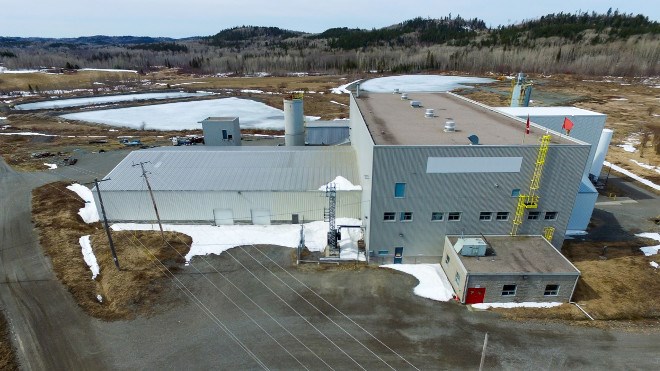First Cobalt has started testing material at its refinery in northeastern Ontario.
But the Toronto exploration company cautions that it hasn't made a final decision on whether to put the plant back into commercial production.
First Cobalt is examining different restart options and is scoping out what international feedstock opportunities and markets exist.
The company announced Nov. 7 that it has started testing cobalt hydroxide material at the refinery to determine whether they could produce a finished cobalt sulphate product for the lithium-ion battery market or cobalt metal that can used in the aerospace sector or for other applications.
Discussions are underway with cobalt miners and commodity traders to explore various sources of cobalt hydroxide to feed the mill.
While the company continues exploration on its 11,700 hectares of property in the Cobalt area, it wants to position the refinery it acquired in 2017 as a tolling mill facility to process outside material.
Located five kilometres east of the Town of Cobalt, it is the only permitted refinery in North America capable of extracting cobalt to produce battery-grade material.
“Our objective is to enter into a long-term agreement for a reliable source of ethically-mined cobalt,” said company president Trent Mell in a news release.
“The cash flow potential from restarting the refinery in as little as 18 months could allow us to fund a significant amount of work to advance our flagship Iron Creek Cobalt Project in Idaho, USA while also providing a much-needed North American source of cobalt.”
“In parallel with these tests, management has commenced discussions with third party sources of capital that would minimize or eliminate any equity dilution associated with a restart of the First Cobalt Refinery.”
The company is examining three different scenarios on the costs to restart and operate the refinery, the permit renewal timelines, potential sources of feed, and offtake opportunities.
In one restart scenario, at a 24-tonne-per-day feed rate, the cost would be US$25.7 million with the refinery could be operating within 18 months of securing a feed source.
The company hired SGS Canada to assist them in the testing milling process. First Cobalt said it’s also sampled a number of old mine waste piles in the Cobalt camp to determine whether this material could be concentrated and used as incremental feedstock for the refinery.
The mill is a three-circuit hydro-metallurgical cobalt-silver-nickel refinery that was commissioned in 1996.
Before being placed on care and maintenance in 2015, it produced a cobalt carbonate, a nickel carbonate and silver doré.




